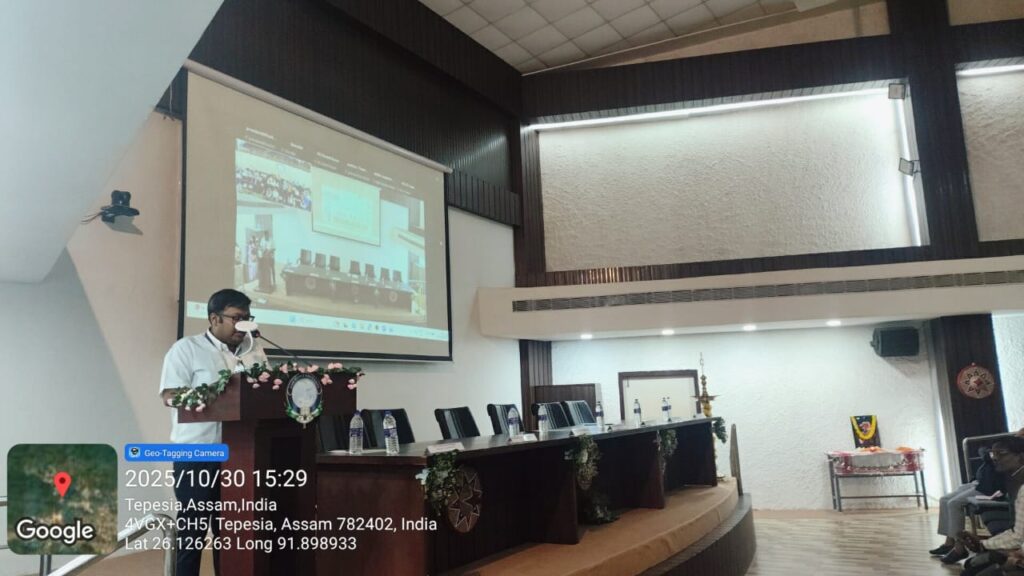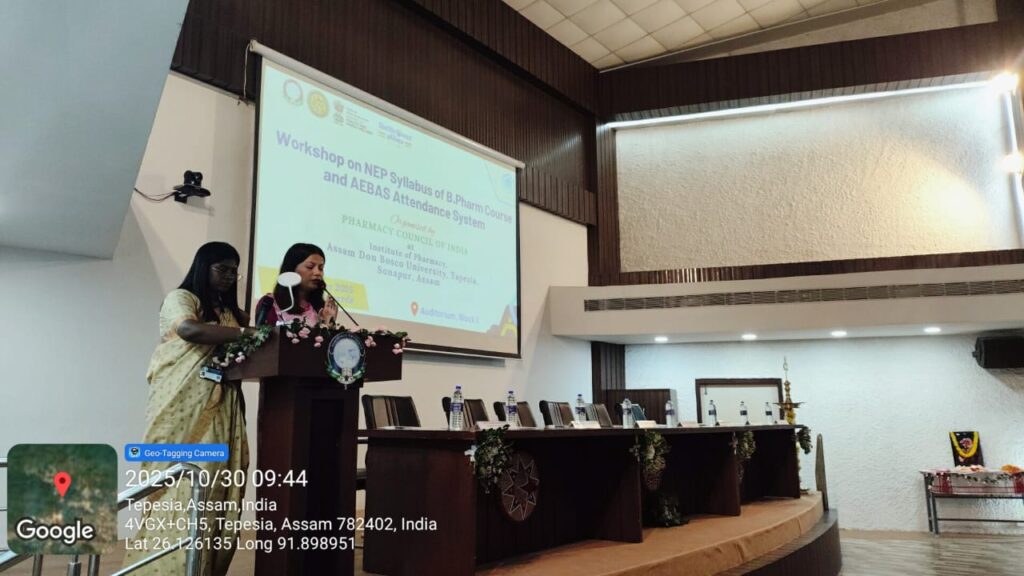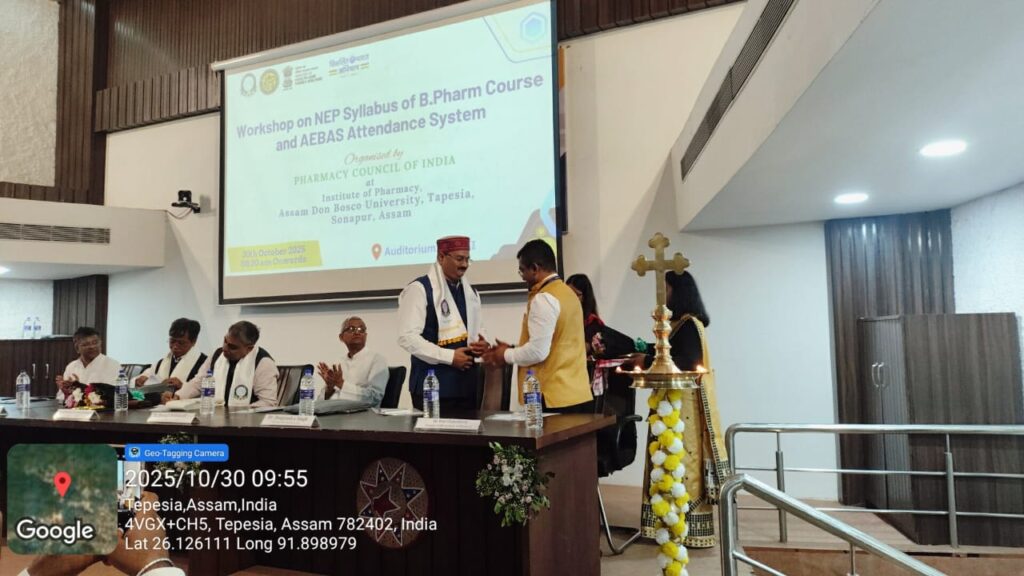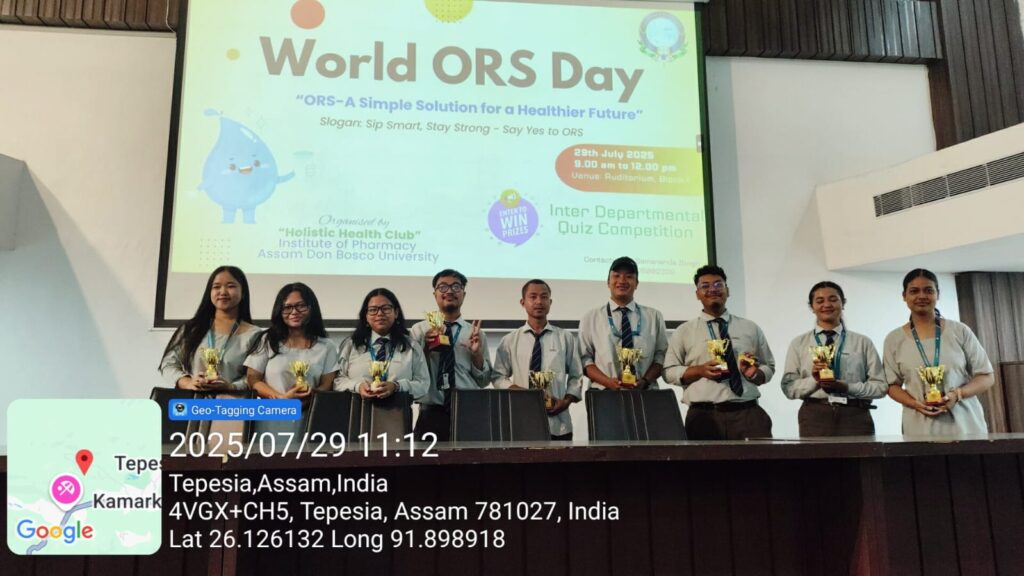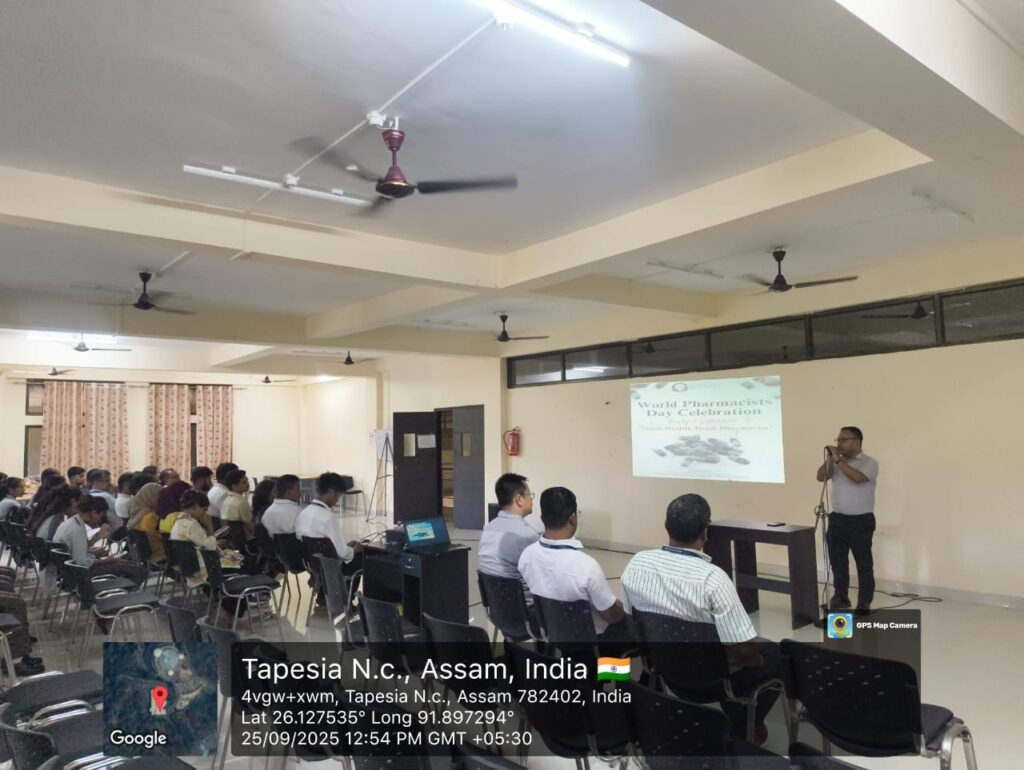A one-day workshop on the NEP Syllabus of the B.Pharm Course and the AEBAS Attendance System was successfully conducted at the Institute of Pharmacy, Assam Don Bosco University (ADBU), Tepesia, Sonapur. The event was organised by the Pharmacy Council of India (PCI) and hosted by ADBU, aiming to familiarise faculty members and administrators with the newly revised B.Pharm syllabus under the National Education Policy (NEP) 2020 and the implementation of the Aadhaar Enabled Biometric Attendance System (AEBAS).
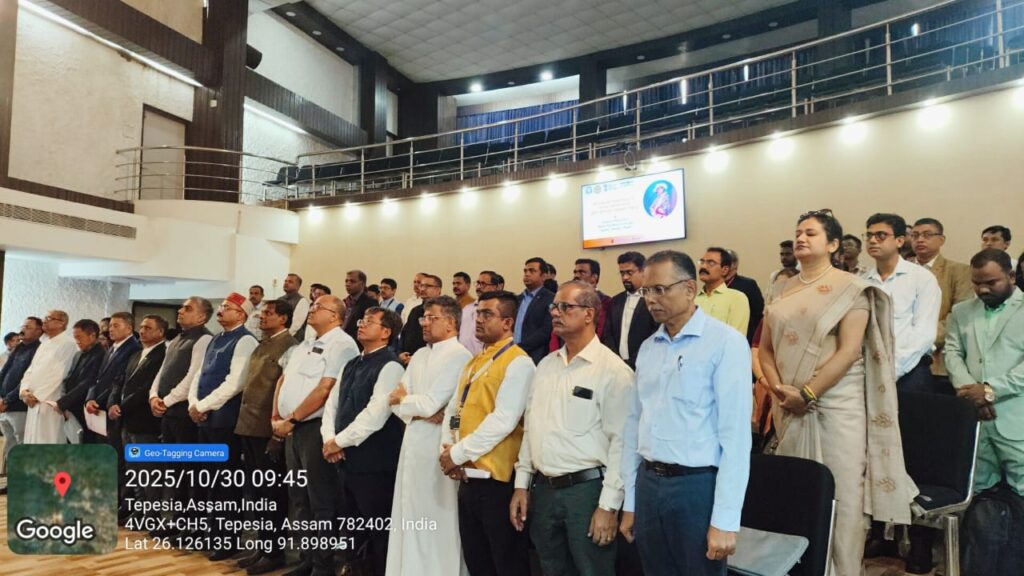
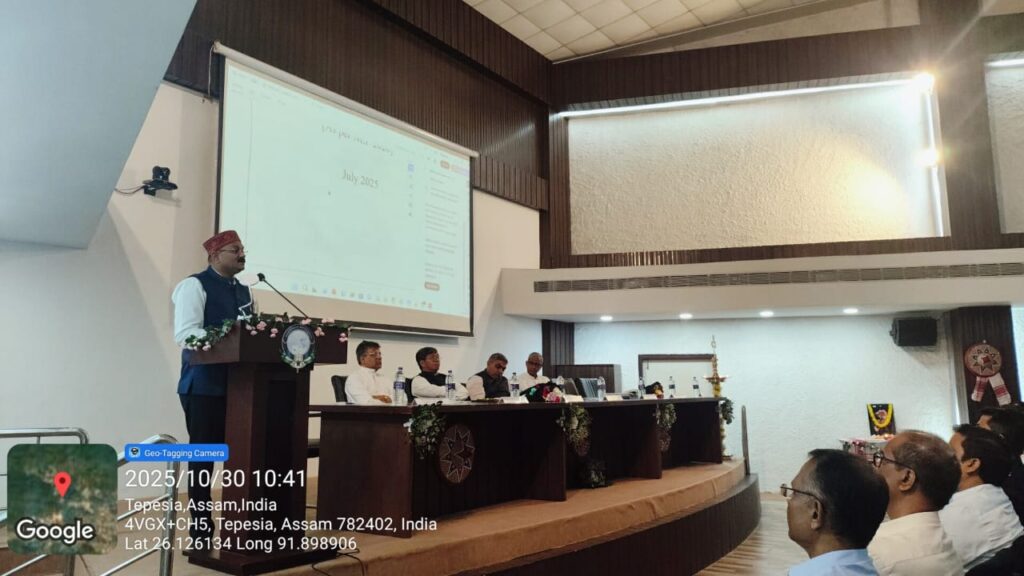
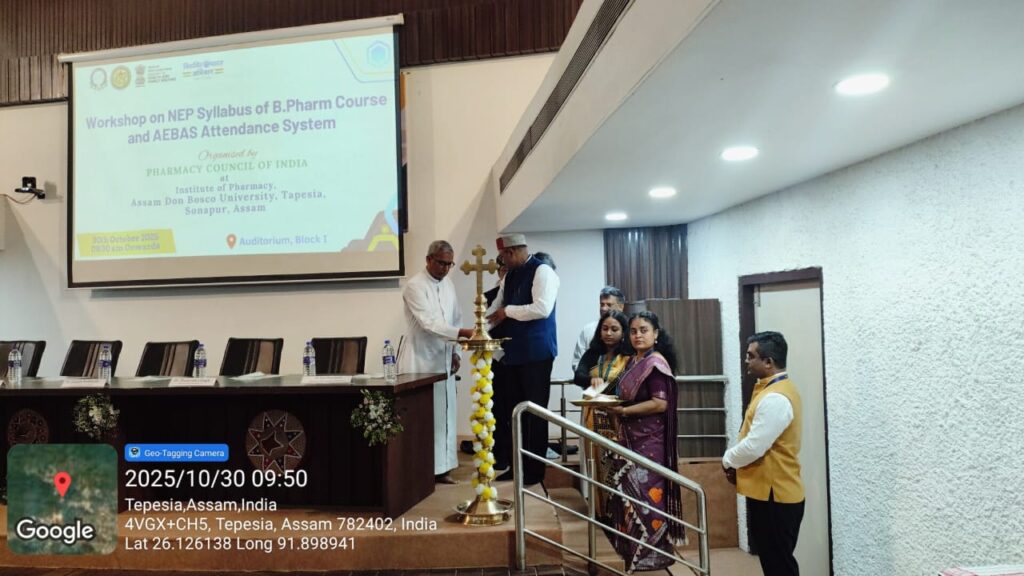
The workshop was graced by eminent dignitaries, including Mr Jashubhai Hirabhai Chaudhari, Vice President, PCI; Dr Deependra Singh, Chairman, Education Regulation Committee, PCI; and other Executive Committee and Central Council Members. The Pro Vice Chancellor, Fr. Joseph Nellanatt, and the Registrar of ADBU also attended the event along with over 80 delegates representing 40 pharmacy colleges across Northeast India.
The inaugural session began with a welcome address by Prof. Raja Chakraborty, Convener of the workshop, who highlighted the importance of aligning pharmacy education with evolving healthcare and digital trends. The ceremony included a tribute to late Assamese icon Shri Zubeen Garg, followed by a traditional Lighting of the Lamp and Saraswati Vandana performed by students. Fr. Nellanatt, in his inaugural speech, expressed delight in hosting a workshop that contributes to national educational reform and academic excellence. Delivering the keynote address, Mr. Chaudhari emphasized the significance of the NEP-aligned syllabus in strengthening clinical competence, research aptitude, and ethical practice among pharmacy graduates. He urged institutions to adopt innovative and student-centered teaching methodologies.
In the first technical session, Dr. Deependra Singh presented an in-depth overview of the restructured B.Pharm curriculum, focusing on the competency-based framework and skill enhancement components. The session encouraged active participation and dialogue among delegates, fostering regional academic collaboration. The post-lunch session, held in hybrid mode, focused on the AEBAS Attendance System and was led by the PCI IT Department in the presence of senior officials from PCI. The presentation outlined the system’s operational framework, compliance protocols, and its role in promoting transparency and accountability in academic institutions.
The workshop concluded with a vote of thanks from the organising committee, acknowledging PCI’s leadership and the enthusiastic participation of delegates. Participants commended the initiative for fostering institutional capacity building and promoting digital transformation in pharmacy education. The event marked a significant milestone in advancing academic innovation and regulatory collaboration between the Pharmacy Council of India and institutions in the Northeast.
